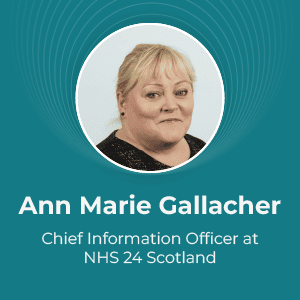
After its launch at Leeds Mobile in July, our Technical Lead Bianca Darolti brought her talk – “Hands on with mobile accessibility: process, gotchas, and exploding buses” – to Softwire’s Manchester office.
Packed with anecdotes and featuring a custom-built coding challenge to get the audience involved, Bianca shared accessibility tips, tricks, and ‘gotchas’ alongside suggestions for integrating accessibility practices in everyday development processes.
Key takeaways from the talk
- A good place to start is the Web Content Accessibility Guidelines (WCAG). Many of the ideas apply to mobile so familiarise yourself with the standards and requirements listed.
- Have accessibility-friendly designs – for mobile apps, you might need different page layouts or formats for when large text, landscape orientation, or dark mode is enabled.
- There are lots of nuances when it comes to mobile accessibility, such as subtle differences in how iOS and Android screen readers behave. Be on the lookout for these; test your app on a variety of devices.
- Make accessibility a part of all your processes – use linting rules, automated testing (e.g. RoboTest for Android apps) and code review checklists that all have accessibility in mind.
- Make sure you test for accessibility as you go! Often there’s temptation to have a big accessibility review ticket at the end of a feature, which (while it has its place) can mean you run out of time to implement all the accessibility fixes needed.
- There is always more to learn! Bianca noted how we tested thoroughly for many accessibility features during one app’s development, but later received feedback related to external keyboards – something we hadn’t thought to test for on mobile.
Did I read “Exploding buses” correctly in the event title?
Yes, you sure did. Bianca waited until the end of the talk to explain this intriguing title. While developing a transport app, a user submitted a bug report claiming they heard that a bus was “exploding” while using it. What?!

Some investigation revealed that on the bus departure page a screen reader will say sentences such as “The number 53 bus is expected at 5pm”. Selecting a bus takes you to a page with more details – but first it will briefly display a loading spinner. So, if you were to click on that bus precisely as it’s reading out the word “expected” you might hear: “The number 53 bus is exp-”, “Loading…”, which of course alarmingly sounds like “the number 53 bus is exploding”!
As Bianca reminded us, expect the unexpected when it comes to mobile accessibility.
Try it yourself – our accessibility coding challenge
Following the talk (and, of course, a crucial pizza break), attendees paired up to take on a set of accessibility coding puzzles designed by Bianca. Using a custom-made website linked to the ExpoGo app on their phones, they had to find and address various accessibility issues on a prototype app.

Fancy having a go? Use the link below to try out the puzzles yourself and learn more about using accessibility labels, hints and grouping components in a way that makes sense to screen reader users.
Upcoming events
Interested in attending one of our events? We host a few different events in our Manchester office throughout the year. Keep an eye on our LinkedIn Events page for the next one!



